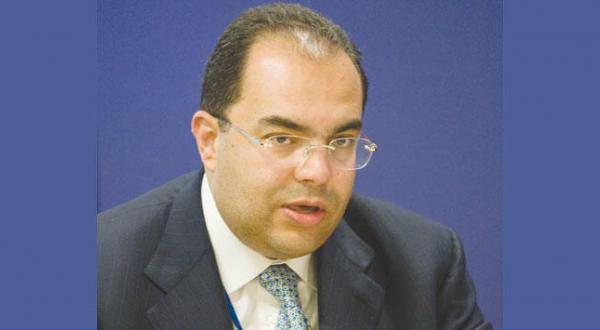The World Bank’s Corporate Secretary Mahmoud Mohieldin expects that gulf oil exporting countries will be affected by the decline in oil prices, welcoming reform measures taken by these countries which include general monetary policies and diversification of income sources.
In an interview with Asharq Al-Awsat, Dr. Mohieldin said that there are golden opportunities in the year of 2016 in light of the declining prices of both mineral products and agricultural goods.
The golden opportunity for Arab countries is to take advantage of those declining prices to develop domains of construction and agricultural, alongside other sustainment projects of renewable energy, thus diversifying income sources and endorsing economic reform, growth and stability.
When asked about political and economic change over the past years in the Middle East, Dr. Mohieldin began with clarifying that the outlook of the economic future for the region remains vague post shortage in information and data collection in Arab countries, especially those suffering conflict that affected their capabilities of accessing statistics and intelligence efficiently and in a beneficial manner.
On the other hand the World Bank, the IMF (International Monetary Fund), in addition to other institutions all differently and independently stated varying rates for the Middle East and North Africa, and it is important to take those rates into consideration.
Considering Arab countries a sole economic machine is a bit of an exaggeration. Each country represents its own independent entity despite the possibility of being interconnected to other fellow countries by the today still restricted intra-trade, investments, labor movement or money transfers.
As for the greatest changes that affected the region, in his opinion, was the 2008 financial crisis fallout that not only influenced the Middle East but also the world. Mohieldin also mentioned the declining oil prices and continues fluctuation of mineral products, services and agricultural goods’ markets, which also took a toll on the region’s economic status.
Arab countries will be able to take advantage of that decline for domains of basic construction and renewable energy projects, after cooperating with international financial institutions.

